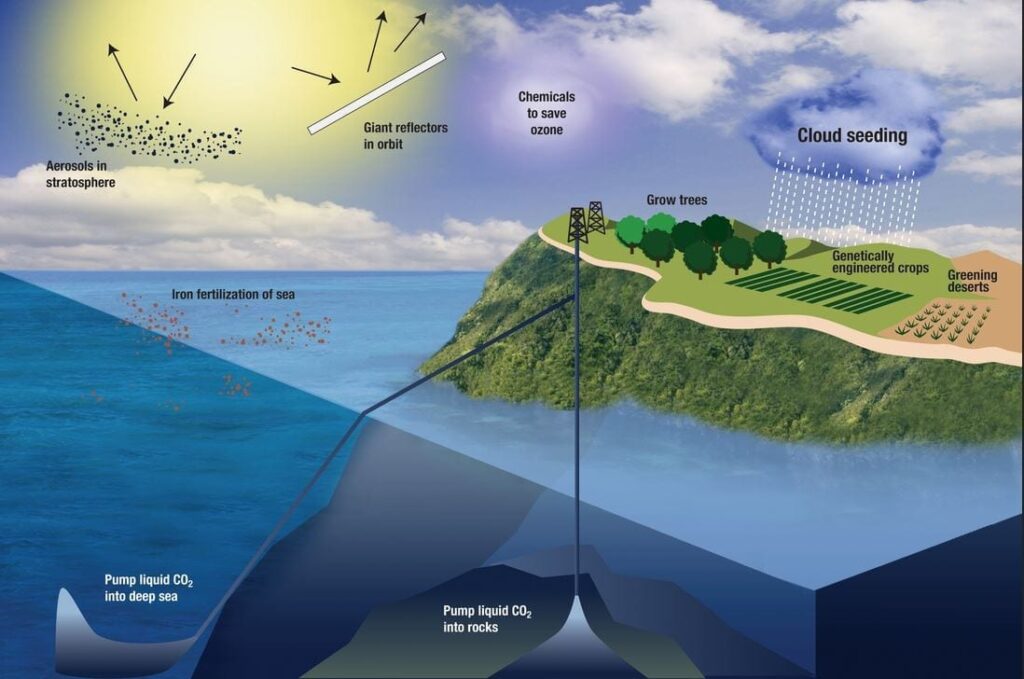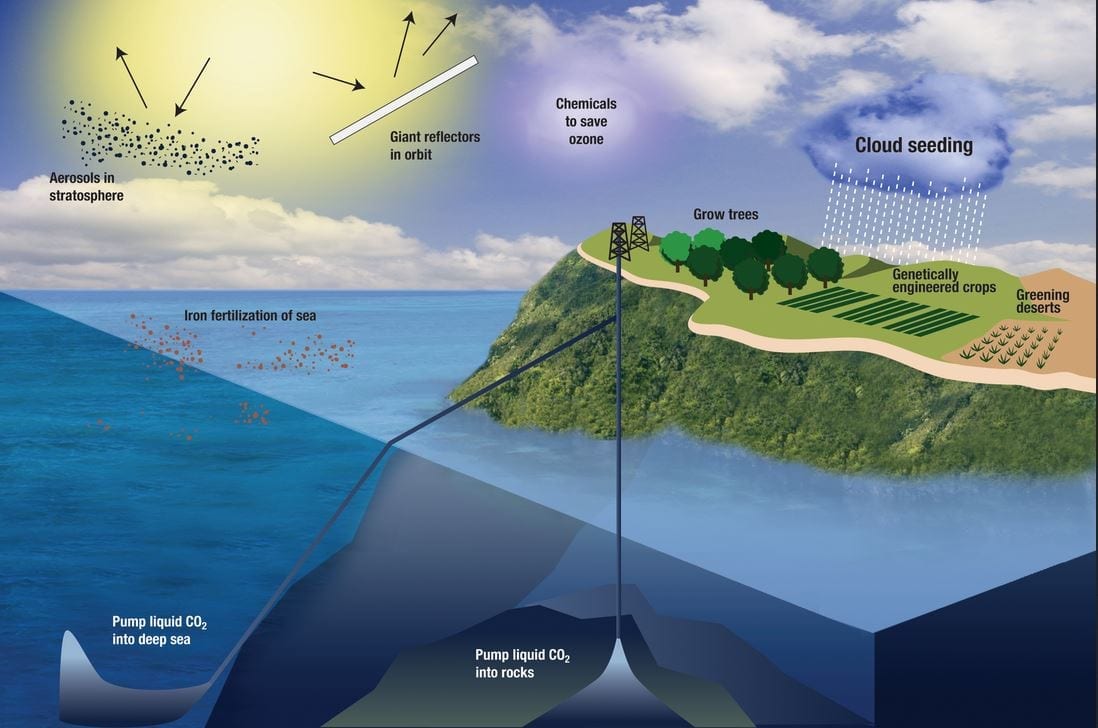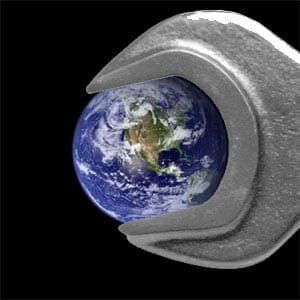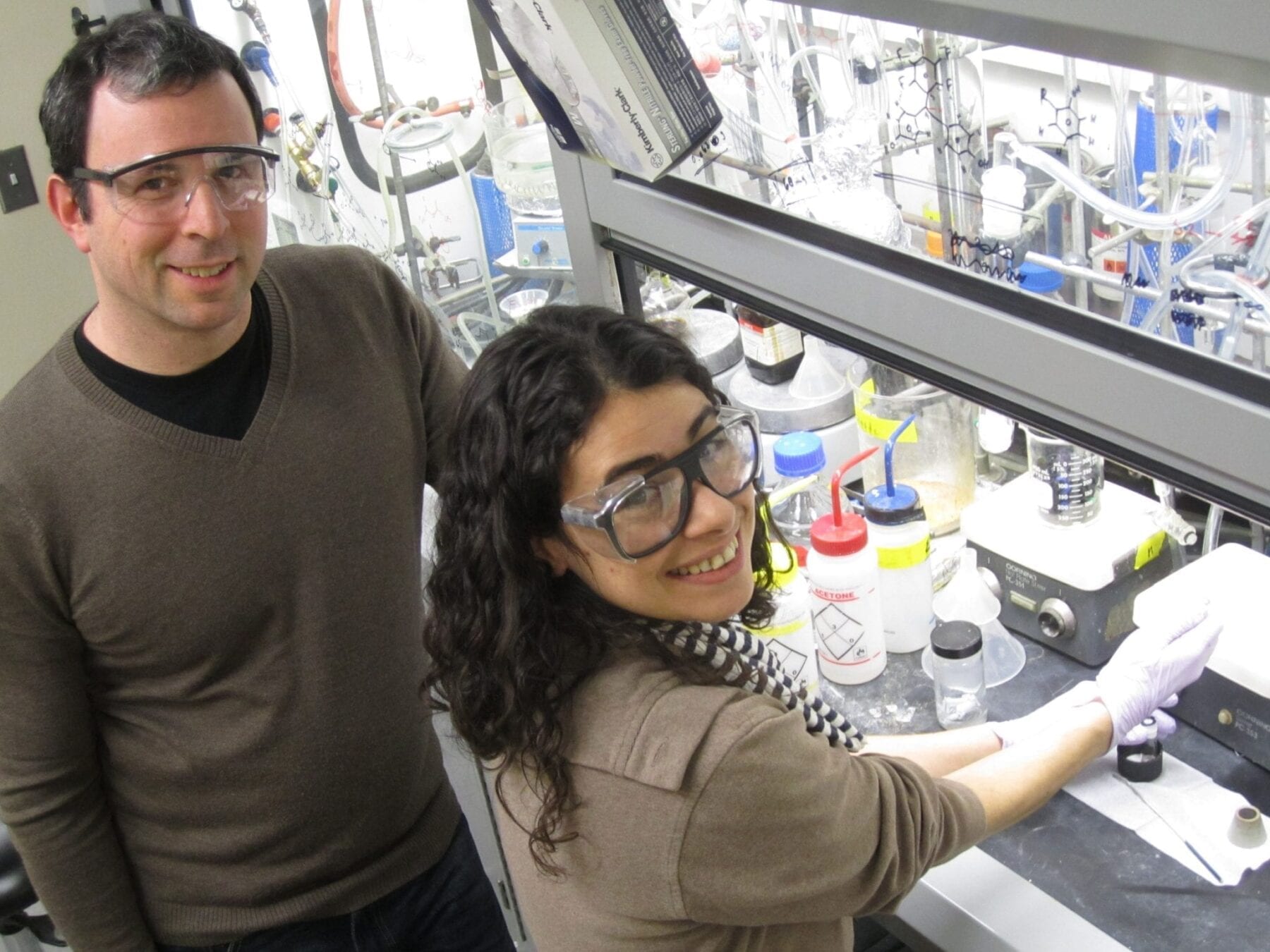
Geoengineering, an emerging technology aimed at counteracting the effects of human-caused climate change, also has the potential to counteract political polarization over global warming, according to a new study.
Published Feb. 9 in the journal Annals of the American Academy of Political and Social Science, the study found that participants — members of large, nationally representative samples in both the United States and England — displayed more open-mindedness toward evidence of climate change, and more agreement on the significance of such evidence, after learning of geoengineering.
“The result casts doubt on the claim that the advent of geoengineering could lull the public into complacency,” said Dan Kahan, professor of law and psychology at Yale Law School and a member of the research team that conducted the study.
“We found exactly the opposite: Members of the public who learned about geoengineering were more concerned and less polarized about global warming than those who were told of the need to reduce greenhouse gas emissions as a way to reduce climate change,” he said.
As defined by the U.S. National Academy of Sciences (NAS), “geoengineering” refers to deliberate, large-scale manipulations of Earth’s environment in order to offset some of the harmful consequences of human-caused climate change. Potential examples include solar reflectors that would cool global temperatures by reflecting more sunlight away from the Earth and so-called “carbon scrubbers,” which would remove CO2 from the atmosphere.
Both the NAS and the Royal Society, the preeminent association of expert scientists in the United Kingdom, have issued reports calling for stepped-up research on geoengineering, which also was identified as a necessary measure for counteracting the impact of global warming in the latest assessment report of the United Nations’ Intergovernmental Panel on Climate Change.
In the study, researchers divided the 3,000 participants into groups, providing some with information on geoengineering and others with information on proposals to limit greenhouse gas emissions. They instructed the participants to read and evaluate actual study findings offering evidence human activity, including the burning of fossil fuels, was heating the Earth’s temperature and creating serious environmental risks including coastal flooding and drought.
“The participants who learned about geoengineering were less polarized about the validity of the evidence than were the ones who got information on carbon-emission limits,” said Kahan.
“In fact, the participants who read about carbon-emission limits were even more polarized than subjects in a control group, who read the information on the evidence of global warming without first learning about any potential policy responses,” he said.
Read more: Advent of geoengineering may help lower temperature of debate over climate change
The Latest on: Geoengineering
[google_news title=”” keyword=”Geoengineering” num_posts=”10″ blurb_length=”0″ show_thumb=”left”]
via Google News
The Latest on: Geoengineering
- State lawmakers pass bill surrounding experimental process in sky: 'This is not a fringe movement'on May 1, 2024 at 11:30 am
While it may seem harmless, the language of this legislation may prevent legitimate future scientific experiments that could help our planet. State lawmakers pass bill surrounding experimental process ...
- Warning that solar geoengineering could cause unexpected regional heatingon May 1, 2024 at 1:30 am
Depending on who you ask, solar geoengineering is seen as a threat to meaningful climate action, a remote fallback, or an essential piece of the puzzle. What most people can agree on is that we don’t ...
- Cloud control: Humanity’s never-ending quest to control the weatheron April 29, 2024 at 6:53 am
For over a century, we’ve turned to technology in an attempt to control the weather. Are today’s geoengineering proposals any better?
- Solar geoengineering is gathering steam in the tech world as a climate solutionon April 28, 2024 at 5:04 am
Solar geoengineering — increasing the sunlight reflected back into space to cool the planet — is gaining the attention of people looking for climate solutions. But critics say it comes with risks.
- Controversial methods to cool the Earth by reflecting sunlight gain traction as global temperatures riseon April 26, 2024 at 2:20 pm
Relatively untouched ideas are gaining momentum as potential short-term solutions to lower Earth's temperature.
- Solar geoengineering to cool the planet: Is it worth the risks?on April 25, 2024 at 8:53 am
When I first wrote about geoengineering in 2012 , it was considered far-fetched at best, and crazy by most. But 12 years later, while there is still controversy and considerable resistance to ...
- MIT Technology Reviewon April 23, 2024 at 1:46 pm
We need more research, including outdoor experiments, to make better-informed decisions about such climate interventions.
- Startups want to cool Earth by reflecting sunlight. There are few rules and big riskson April 23, 2024 at 12:04 am
In a parking lot and on San Francisco Bay, NPR witnesses two different tests for solar geoengineering to tackle climate change. With much science unsettled, experts say regulations aren't keeping up.
- Geoengineering could save the ice sheets – but only if we start soonon April 22, 2024 at 6:02 am
Shading the planet by spraying aerosols into the stratosphere might stave off ice sheet collapse, modelling studies suggest, but we are running out of time ...
- Playing God With the Atmosphereon April 18, 2024 at 1:27 pm
Interfering with Earth’s climate systems is becoming more possible—and less predictable—than ever.
via Bing News











